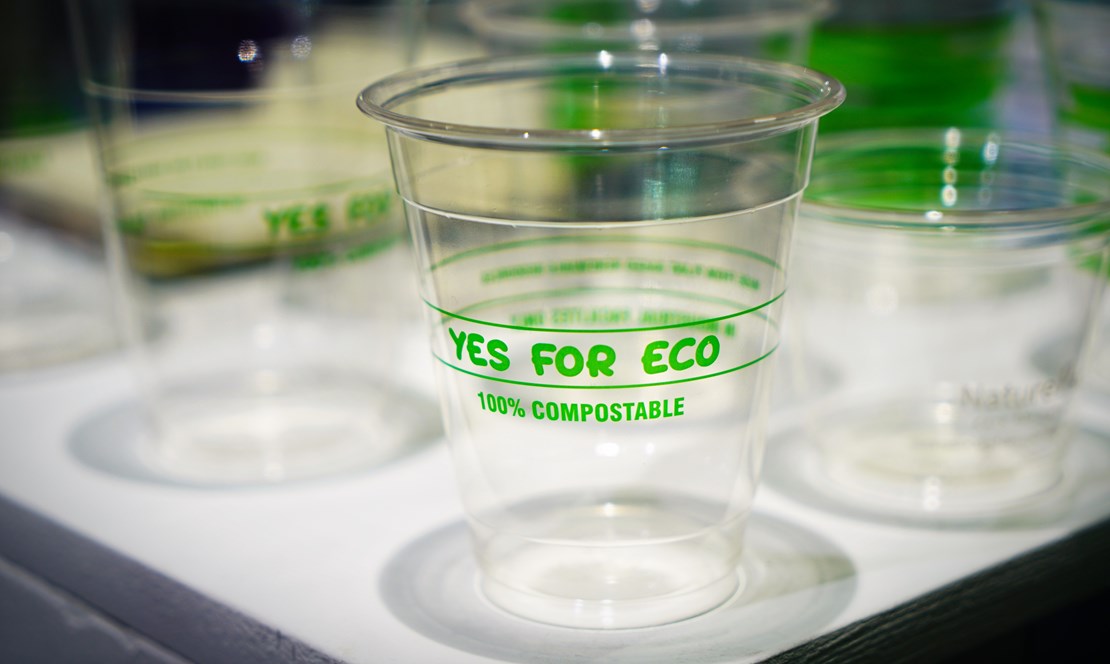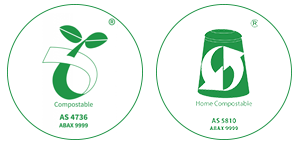Breaking down bioplastics this National Recycling Week

If you’ve ever looked at a disposable cup and seen the label ‘compostable’ and wondered what this means, you’re not alone. These items fall into the category of ‘bioplastics’ and have been created as a more environmentally friendly alternative to traditional plastic. But their prevalence has caused confusion for consumers and created challenges for recyclers.
In Victoria, the single use plastic ban has restricted the sale and use of single use items, including those made from ‘bioplastic’. However, these items – and other single use items, remain in circulation. Bioplastic drinking cups are an example of a widely used bioplastic item. And single use bioplastics like bowls and cutlery are permitted in certain settings, such as music festivals.
Disposing of single use bioplastics
In Australia, most bioplastics are classified as compostable, which means they’re made from plants, and they’re designed to biodegrade under certain conditions. These items are labelled as either ‘industrially compostable’ or ‘home compostable’ and usually have the following labels/embossing respectively.

Since they are made from plants, you cannot put them in your kerbside recycling bin. If you do, they can mix with other materials and contaminate this waste stream, making it hard to recycle things like plastic, paper, and glass.
These items also can’t go into a FOGO bin to be composted because they look too much like traditional plastic items – and the people inspecting our FOGO recycling may not be able to tell the difference.
So, for ‘compostable’ items:
- If the label indicates it's ‘industrially compostable’, put it in your regular garbage bin. It will eventually break down in the landfill.
- If the label indicates it's ‘home compostable’, you can put it in your home compost bin, but if you're not sure, it's better to throw it in your regular garbage bin. Do not throw it in your FOGO bin.
There is only one exception to this rule and that’s kitchen caddy liners for FOGO recycling. Certified compostable caddy liners are permitted by our processor.
If something is labelled only as ‘biodegradable’ put it in your regular garbage bin only – as it might contain regular plastic, which can harm the environment.
Avoiding single use bioplastics
While bioplastic items have some environmental benefits compared with conventional plastics, it’s better to avoid them altogether. Here are some tips everyone can use:
- Buying a coffee? Switch to using a reusable coffee cup. Single use coffee cups cannot be recycled in the City of Port Phillip, and this includes bioplastic ones.
- Stopping for food or drink on the go? Bring a reusable cup when buying a juice or smoothie – or bring your own containers for leftovers at restaurants or to collect your takeaway food.
- Heading to a festival? Bring your own containers or plates for food. This helps reduce the need for single-use packaging.
And for business owners, especially those running cafes or restaurants using bioplastics for takeout:
- Encourage dine-in: encourage your customers to sit down to eat instead or to bring their own containers for take-away.
- Sharing is caring: consider using a platform like Returnr. In this membership scheme, customers pay a small fee to ‘rent’ a reusable bowl. When they return it, they get their money back. It's a great option for regular customers.
By disposing of bioplastics correctly – and minimising single use items more broadly, you can contribute to a more sustainable Port Phillip.
For a comprehensive guide on recycling and disposing of items in our city, see our A to Z guide to waste and recycling options.